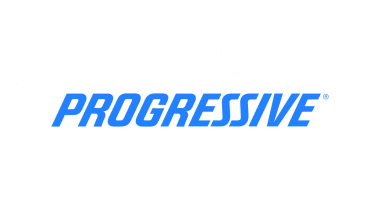Insurance is a legally binding and financially oriented agreement that entails the participation of two parties. One party is proposing to provide coverage for an individual or their property, while the other party intends to make the purchase. The entity that provides insurance coverage is commonly the “insurer,” while the individual or organization that holds the insurance policy is the “policyholder.” A policyholder is the designated owner of the policy, and their name appears in the company’s records. Generally, the individual who holds the policy is also the insured party. However, it is not a must for the policyholder and the insured to be the same person, as it may be in a life insurance policy.
Find out more…
What Is an Insurance Policyholder?
A policyholder refers to an individual or organization whose name is recorded in the insurance company’s records.
The policyholder refers to an individual or organization that possesses or maintains an insurance policy and is entitled to exercise the privileges specified within the contractual agreement. The party in question is usually, though not consistently, the insured individual and may or may not be among the beneficiaries specified in the policy.
In the scenario where an individual procures a home insurance policy in their own name, they assume the dual role of being the policyholder and one of the insured parties. As a result, they have a right to the full protection that the policy’s contractual provisions provide.
If an individual resides with their family, it is important to note that the family members are also included as insured parties under the policy. These family members are not considered policyholders as they lack control over the policy. However, they are still eligible to receive the protections afforded by the policy. The aforementioned statement holds true in the context of life insurance policies that involve multiple beneficiaries.
In certain cases, it is possible to have multiple policyholders. However, even in such unique circumstances, there is always a designated “named policyholder” or “named insured” who assumes the primary responsibility for overseeing the policy. The individual will possess the authority to formally request policy modifications from the insurance provider.
What Are the Responsibilities of the Policyholder in an Insurance Policy?
In the process of purchasing a policy from an insurance provider, it designates you as the policyholder. Below is a description of the responsibilities and benefits associated with this position.
The policyholder is the individual responsible for procuring the insurance policy and fulfilling the necessary steps to complete the insurance application. After the insurer has approved the application and issued the coverage, the policyholder assumes control over the policy. If any individual wishes to make modifications, they will need to do so by contacting the policyholder.
As the policyholder, it is your responsibility to make payments for the premium. The monthly cost represents the insurance premium charged by the provider for their policies. As your name is associated with the account, you will be the designated recipient of the bill. However, this implies that you possess authority over the policy.
Hence, you have the exclusive authority to modify it by making adjustments to the beneficiaries or including additional insured individuals.
Who Is The Insured?Insured – Policyholder vs Insured
The term “insured” pertains to individuals who are included within the coverage of an insurance policy. As the policyholder, you typically belong to this category.
Various types of coverage may encompass the inclusion of your immediate family members within the definition of “insured.” In many cases, auto insurance, renters insurance, and homeowners insurance policies generally provide coverage for spouses, children, and parents as a standard inclusion. Nevertheless, it is important to be mindful of a few distinct circumstances:
#1. Life Insurance
Generally, the individual who holds the policy is also the individual who is insured. However, it is common for individuals to acquire a life insurance policy with the intention of providing financial protection for their loved ones. For instance, Nick has the option to acquire a life insurance policy on behalf of his spouse, Kate, who would be designated as the insured party. As the designated policyholder, Nick would maintain full control over the policy.
#2. Automobile insurance
The car insurance policy typically provides coverage for passengers in your vehicle while you are operating it. It does not provide coverage for drivers who are not listed on the same insurance policy. As the policyholder, you have the option to include additional drivers on your policy. However, it is important to note that many providers may impose a fee for each additional driver added.
#3. Renters Insurance
Renters insurance is a type of insurance policy that provides coverage for individuals who are renting a property.
Typically, renters insurance provides coverage exclusively for the policyholder and their immediate family members who reside in the same household. Roommates are not considered insured individuals under the policy. Therefore, it is necessary to include them in the policy by paying an additional fee or alternatively, they may choose to obtain their own insurance plans.
#4. Homeowners Insurance
Homeowners insurance is a type of insurance policy that provides financial protection to homeowners in the event of damage or loss to their property.
In the event of jointly owned property, such as with a spouse, it is possible for both individuals to be designated as policyholders for homeowners insurance.
Who Is the Policyholder in Group Insurance Plans?
In the event that you decide to enroll in an insurance plan offered by your employer, it is possible for your employer to be recognized as the primary policyholder while you assume the role of the “insured” party.
Policyholder vs Insurance Subscriber
The distinction between a policyholder and an insurance subscriber lies in their respective roles within an insurance agreement.
An insurance subscriber is essentially synonymous with a policyholder. Insurance subscribers are responsible for paying the premiums on the policy. This can either be the individual themselves or the person whose employer offers the policy as a benefit. The policyholder is the owner of the policy.
Policyholder vs Beneficiary
The distinction between a policyholder and a beneficiary is an important aspect of insurance contracts. The policyholder refers to the individual or entity that purchases the insurance policy.
A beneficiary, on the other hand, refers to an individual who is designated to receive the death benefit of a life insurance policy. The individual in question may or may not possess the status of being a policyholder. A single life insurance policy has the capacity to accommodate multiple beneficiaries while maintaining a single policyholder.
Life Insurance Policyholder vs. Insured
The policyholder, who is the owner of the policy, and the insured, who is the person the policy is protecting, are typically one and the same in the majority of insurance policies. When purchasing home insurance, for instance, individuals acquire coverage for their residential property. This helps to safeguard them in the event of a covered loss occurring at their place of residence.
However, in the context of life insurance, it is important to note that the policyholder and the insured individual may be distinct entities.
When an individual purchases life insurance for themselves, they assume the dual role of being both the policyholder and the insured party. However, it is also possible to opt for the purchase of life insurance for another individual. In such instances, you assume the role of the policyholder, while the person for whom you have purchased life insurance is referred to as the insured individual.
In cases where the policyholder and the insured party are distinct individuals, the policyholder possesses the choice to designate themselves as the beneficiary. This implies that the beneficiary will receive the payout from the life insurance company upon the demise of the insured individual.
Nevertheless, as the policyholder, you retain complete control over the policy. In order for the insured to make any modifications to the policy, it is necessary to obtain your approval.
To purchase life insurance for another individual, it is necessary to demonstrate to the insurance provider that you possess a valid insurable interest in the person for whom you intend to acquire a policy. This entails demonstrating to the insurer the interconnectedness of your financial future with the individual being considered for insurance coverage, such as a spouse or business partner.
Can a Policyholder Be Changed After You Purchase a Policy?
No, it is not possible to alter the policyholder’s information after purchasing a policy. In certain circumstances, however, it may be necessary to modify the policyholder’s information to accurately reflect a different individual. In this scenario, your insurance provider will proceed with the cancellation of your existing policy and subsequently initiate the process of reissuing it under the name of the new policyholder.
Policyholder and Listed Drivers
Policyholders are responsible for the purchase and management of insurance policies, which includes the task of making necessary adjustments to coverage. Many auto insurance policies offer the option for multiple policyholders, allowing spouses and partners to jointly hold the policy.
However, it is possible to provide protection for other drivers who may not meet the criteria of being a policyholder. These individuals are referred to as listed drivers. A teenager who has recently obtained their driver’s license is typically categorized as a listed driver rather than a policyholder. If the teenager were to contact the insurance provider with the intention of modifying the automobile insurance coverage, for instance, they would without a doubt find it impossible to accomplish. This is basically because activities like this are reserved for the individual who purchases and holds the policy.
What Is Another Name for the Policyholder of Insurance?
The term “policyholder” is synonymous with the phrase “policy owner.” When an individual purchases an insurance policy under their own name to protect their personal belongings, they assume the role of the policyholder. The term “policyholder” is also sometimes referred to as the “named insured.”
Bottom Line
The policyholder refers to an individual or organization that possesses or maintains an insurance policy and is entitled to exercise the privileges specified within the contractual agreement. The party in question is usually, though not consistently, the insured individual and may or may not be among the beneficiaries specified in the policy.
After the insurer has approved the application and issued the coverage, the policyholder assumes control over the policy. If any individual wishes to make modifications, they will need to do so by contacting the policyholder.
As the policyholder, it is your responsibility to make payments for the premium. The monthly cost represents the insurance premium charged by the provider for their policies. As your name is associated with the account, you will be the designated recipient of the bill. However, this implies that you possess authority over the policy.
- TYPES OF LIFE INSURANCE POLICY: How Many Are They?
- CAN YOU GET A REFUND ON CAR INSURANCE?
- INSURANCE POLICY: Definition, Types & How It Works
- Mortgage Insurance in Case of Death: Why You May Need It






